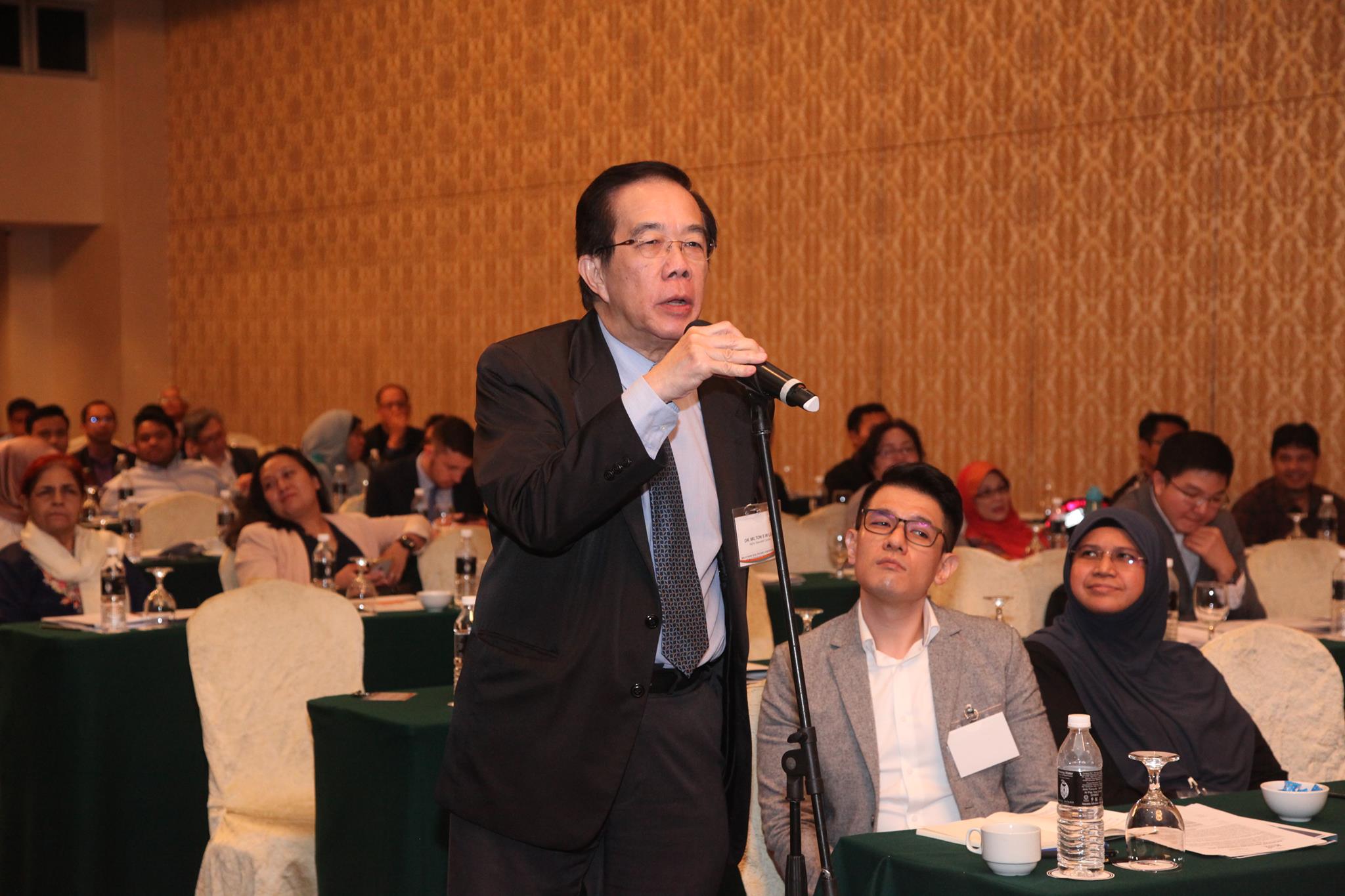2023 was annus horribilis for Malaysian health care. Nicotine delisting from the Poisons List on 1 April 2023 was the primary event that was deleterious to Malaysians’ health.
It opened the floodgates to advertising, promotion and sales of nicotine products; entry of tobacco companies to the vaping market; and most importantly, legalised sales to everyone including minors below 18 years, which is still occurring.
What portends for Malaysian health care in 2024?
Nicotine Addiction
Despite the WHO Director General’s statement on 2 June 2023 that “e-cigarettes and vape must be regulated, dismissing the tobacco industry’s claim of harm reduction with these nicotine products” and urging to “please protect your citizens, especially your children”, the monumental bungle of nicotine delisting was only somewhat mitigated by Parliament passing the the Control of Smoking Products for Public Health 2023 Bill (“Bill”).
The shocking omission of smoking devices from the Bill – with the statement that safety standards of these devices would be regulated by the Domestic Trade and Cost of Living Ministry, and manufacturing by the Ministry of Investment, Trade and Industry – will pose a regulatory conundrum.
The regulations of the Bill, which will hopefully be implemented in 2024, can only limit the damage to the health of young Malaysians, many of whom will become nicotine addicts.
Unlike the acute impacts of Covid-19, the effects of nicotine delisting would not be obvious immediately, but in the medium to long-term.
More Covid-19 Cases and Other Infections
Continuing mutations of the Covid-19 virus still impact globally. There will be waves of infections in 2024, which the health system should hopefully be able to cope. The increasing knowledge of Long Covid is still incomplete.
However, Malaysian data is limited. Could Long Covid be the next public health disaster in Malaysia?
Dengue cases increased markedly in 2023. Hopefully, the trend will go south in 2024 or at least, not increase further.
The virus with pandemic potential that worries many is avian influenza (i.e. bird flu), which can mutate to become easily transmissible to humans. Multiple human cases of bird flu of various strains were reported in China and Cambodia in 2023, together with two outbreaks of the highly pathogenic A(H5N1) influenza in Cambodian poultry farms.
The large and continual outbreaks of avian influenza in birds and mammals increases the likelihood of mutations and mixing of bird and human influenza genetic materials, which could lead to a new virus with pandemic potential.
Non-Communicable Diseases
Non-communicable diseases (“NCD”) will continue to rise with increasing undiagnosed and uncontrolled numbers, because of uncoordinated control.
This will impact on Long Covid, NCDs and their complications; and also strain service delivery in the underinvested, overworked, crowded public health care system.
The effects of backlogged surgeries during Covid-19 and inadequate or no treatments for NCD will inevitably lead to premature and excess morbidity and mortality.
Patient Safety
A previous health minister informed Parliament that 46 public hospitals were more than 50 years old and more than 50 per cecnt of the equipment were more than 10 years old. All these patient safety hazards have not been addressed by a definitive action plan, with timelines to upgrade the all old hospitals and outdated equipment.
A fundamental principle in Medicine is Primum Non Nocere (First do no harm). It appears that this has been not duly emphasised.
The public has a right to know how safe care is in the public sector. Are there any indicators that patient safety in Malaysia has improved in 2023?
The Public Accounts Committee abdicated its responsibilities when it announced that no one was accountable for the procurement, without contract, of defective ventilators during Covid-19 pandemic.
Will abdication of responsibility for patient safety continue in 2024?
Medical Workforce
That doctors are crucial in health care delivery, was evident during the Covid-19 pandemic, when some doctors had to play God and decide who is to be ventilated or not – a difference between life or death.
Junior doctors play a vital role in hospitals as they implement decisions of the limited numbers of specialists and consultants.
While transfers are the norm in the public sector for decades, junior doctors were treated poorly in 2023, with a fraction of them getting permanent posts and their transfers messed up.
There were multiple factors for the chaotic situation including poor coordination and communication between Putrajaya and the health care facilities in the community; ignorance of health care facilities needs and requests; and an insensitivity to the attitudes and needs of junior doctors.
Medical unemployment and disgruntlement will continue with the issue of contract doctors yet to be adequately addressed. The best and brightest will seek continue to seek employment abroad with Malaysia one of the few countries that train doctors, at public expense, for other countries.
Junior doctors’ problems will continue to remain in 2024. Hopefully, there will be fewer management blunders.
A separate Health Service Commission has been discussed for about two decades and was supported by previous health ministers. No cogent rationale has been given by the current government for not supporting a separate Health Service Commission.
Are health care sector jobs the same as that of other employees in the public sector? Do the latter work on weekends and public holidays and after office hours?
Medical Technologies
New technologies e.g. diagnostics, smart drug delivery mechanisms, genome sequencing, machine learning, mRNA technology, artificial intelligence etc will increasingly impact on health care.
A fundamental in electronic health records (“EHR”) is the public’s trust that their health data will be kept confidential. Privacy is critical. The health ministry’s statement that EHR will be rolled out throughout the country by 2026 is very unlikely to see the light of day. If a third or half the country has EHR then, Malaysia would have done very well.
After the adverse publicities, has public trust in MySejahtera been regained?
Issues of patients’ confidentiality and security; patient safety; and the successes and failures of the new technologies will continue to be increasingly problematic. This is particularly so with the use of AI in health care. The accountability and framework of the safe and effective use of AI to meet the needs of all users has to be formulated.
It is vital to always remember that new technologies are just tools. Discrimination and careful evaluation are critical for humane health care and not technological exuberance.
Increasing Health Care Expenditure
Health care expenditure and medical inflation will continue to rise because of the aging population; NCDs; Long Covid-19; other infectious diseases; new technologies; increasing patient demands; and the unrestrained middlemen and rent seekers in health care.
Increasing out-of-pocket expenditures in the private and public sectors will lead to more families facing financial ruin if they or their relatives get catastrophic diseases e.g. cancer heart attack, stroke, Covid-19; or are made redundant.
More general practitioner (“GP”) clinics and even some private hospitals will close because of financial unsustainability, staff burnout and stringent implementation of regulatory requirements.
There will be mergers, acquisitions and closures of some private medical schools because of financial unsustainability and reducing demand.
General practitioners’ minimal or non-involvement in management of NCDs in public sector patients will impact negatively on population health and the risks of infectious diseases and NCDs.
Public Trust and Health Policies
Health care will be increasingly provided by non-health sectors with technological tools, posing problems for regulators.
The health ministry’s budgetary allocations cannot assure improved patient safety and quality care unless wastages, inefficiencies, and the role of middlemen and rent seekers are reduced markedly; and there is an open and just culture within the ministry.
As long as health policies are formulated without genuine consultation with stakeholders, success will be limited or absent.
Public trust will continue to wane for various reasons including poor risk communication; non- or poor compliance to standard operating procedures; failure of authorities to engage meaningfully with the private sector, universities and civil society; misuse and abuse of social media; lack of transparency; and poorly considered policies.
Will the pressure for change in public health care delivery come to a head in 2024?
Will Health Care Improve in 2024?
2023 was the first year after the Covid-19 pandemic during which the health system verged on collapse at times. None of the data available indicated that the population health improved in 2023, which exposed numerous examples of irresponsibility, unaccountability and incompetence underpinned by arrogance and poor insight.
GE15 led to the Madani government with all the component parties spouting health and health care in their manifestos. There was much hype about the Health White Paper which was adopted by Parliament in July 2023. Since then, the hype has been replaced by a whimper.
Will there be substantial changes in health and health care management? Or will 2024 be a year of reckoning for the health care system?
Stay Healthy
Health care is avoidable by staying healthy. A healthy diet, maintaining an appropriate weight, regular exercise, sufficient rest, safe sexual practices, avoiding nicotine exposure, moderate alcohol consumption, and keeping vaccinations current are necessary. This requires effort, smart lifestyle choices and the occasional medical check-up.
NCDs, infectious diseases and other health risks can be minimised by compliance with one’s individual responsibilities and vaccination.
Wishing all readers good health in 2024. Take care of yourself and stay safe.

Dr Milton Lum is a Past President of the Federation of Private Medical Associations, Malaysia and the Malaysian Medical Association. This article is not intended to replace, dictate or define evaluation by a qualified doctor. The views expressed do not represent that of any organisation the writer is associated with.
- This is the personal opinion of the writer or publication and does not necessarily represent the views of CodeBlue.








